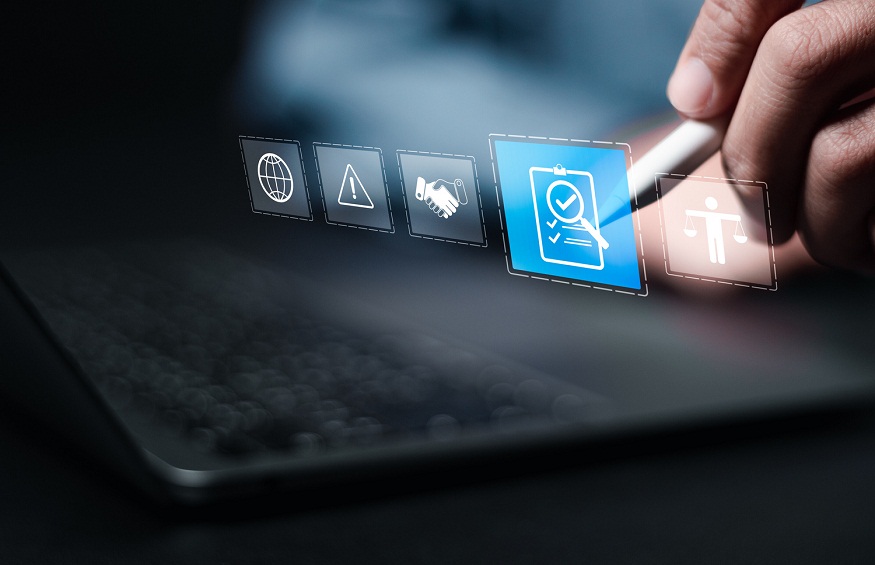In today’s digital world, robust IT security is absolutely vital for organizations of all sizes. One key tool for protecting your systems and data is cybersecurity audits.
What are IT Security Audits?
An IT security audit is an objective evaluation of your organization’s technology infrastructure, systems, policies, and processes. Independent auditors assess areas like network security, data protection, disaster recovery plans, and more.
The goal is to identify potential vulnerabilities, gaps, or non-compliance issues that could be exploited by bad actors. Auditors then provide recommendations and a roadmap for shoring up your defenses.
Why Are They Important?
Technology powers virtually every aspect of business operations today. A single breach could bring devastating consequences, like:
- Data loss/theft.
- Service interruptions.
- Regulatory penalties.
- Reputation damage.
The impacts go far beyond just operational disruptions and out-of-pocket costs. Maintaining customer trust is paramount, and that is difficult after a major incident.
What Do They Cover?
Comprehensive IT audits should evaluate security controls across your entire tech environment, including:
Applications and Databases
Ensuring software is regularly updated/patched and properly configured to prevent exploitation.
Access Controls
Verifying only authorized users can access systems and data through robust identity/access management protocols.
Network Protection
Assessing firewalls, VPNs, wireless security, intrusion prevention/detection, and overall network architecture.
Physical Security
Examining controls around server rooms, workstations, mobile devices, etc.
Policies and Compliance
Reviewing security policies, processes, disaster plans, regulatory requirements, third party practices, etc.
Personnel Practices
Auditors will also scrutinize how your organization hires, trains, and manages employees and contractors with access to sensitive data and systems. Procedures for background checks, security awareness training, and off-boarding are critical. Even with strong technical controls, insiders remain one of the top sources of threats.
Audits follow standardized frameworks and control checklists tuned to your specific industry, use cases, and tooling. For example, if you utilize Oracle products, dedicated Oracle audit specialists like those at Miro Consulting would scrutinize your environment.
Ongoing Auditing Rhythms
Of course, audits are not a one-and-done affair. They should occur on a recurring schedule appropriate for your organization. Common models include:
Annual Audits
A comprehensive assessment each year to ensure overarching security health.
Targeted Audits
Deep dives into specific risk areas like applications, cloud environments, compliance, etc.
Penetration Testing
Simulated attacks to ethically probe for weaknesses in your live systems and responses.
Pre-/Post- Change Audits
Evaluations before/after major tech deployments, M&A activity, regulatory shifts, etc.
It is also wise to integrate automated, continuous monitoring between full audits. This provides real-time visibility and alerts on evolving threats.
Proven Payoffs
While audits require effort and investment upfront, the potential payoffs far outweigh the costs. Key benefits include:
- Stronger security postures and lower breach risks.
- Ensuring compliance with standards like PCI, HIPAA, ISO, etc.
- Improved efficiency by automating controls and remediation.
- Establishing security accountability across the organization.
- Protecting your brand reputation and customer trust.
Conclusion
In our increasingly risky digital landscape, audits are not optional, they are a must-have component of any robust cybersecurity program. With proper auditing and diligence, you will be equipped to quickly detect and respond to threats before they can cause catastrophic damage.
Make no mistake, the auditing process can be intensive. It requires full transparency and a commitment to resolving any findings. But look at it as an investment that pays dividends through reduced risk, enhanced reputation, and most importantly, peace of mind. In today’s environment, that’s priceless.
So whether you’re a small business or large enterprise, make audits a cornerstone of your cybersecurity strategy. Protect your data, protect your operations, and protect your future by knowing your true security posture. The role of audits is simply too critical to ignore.

